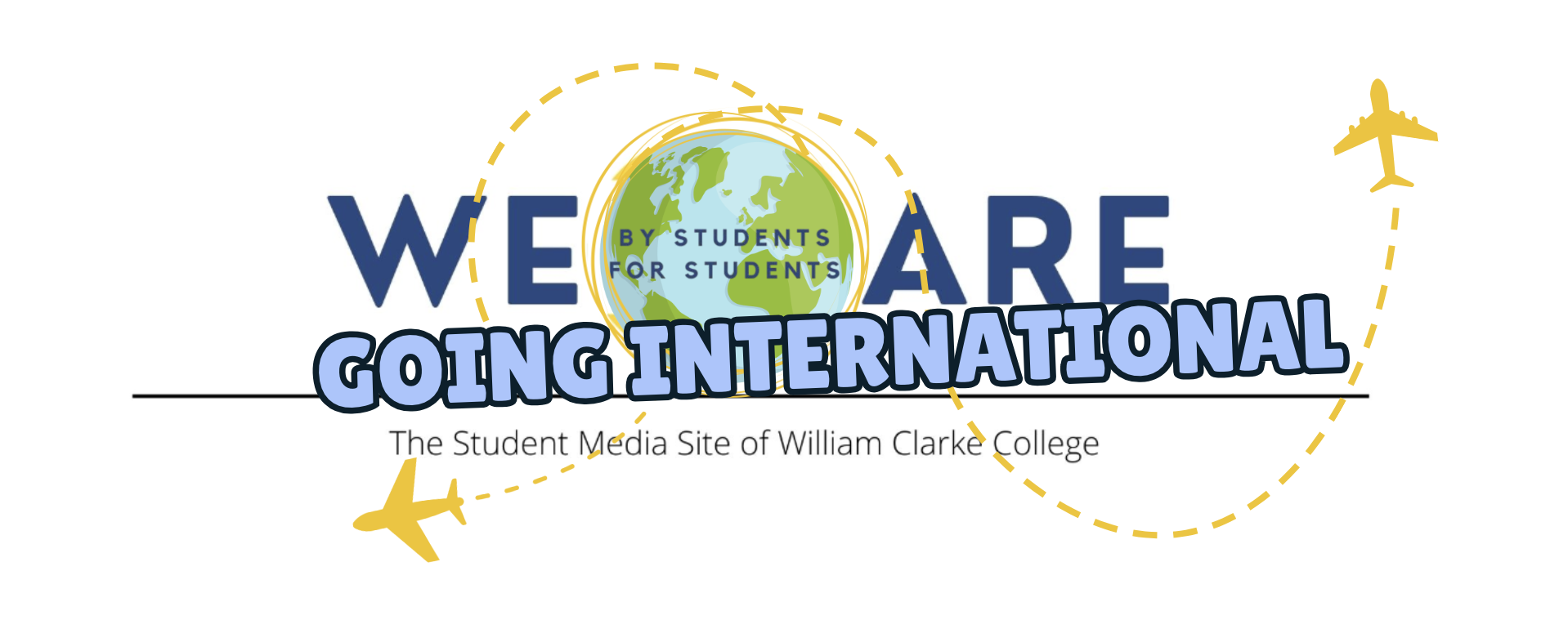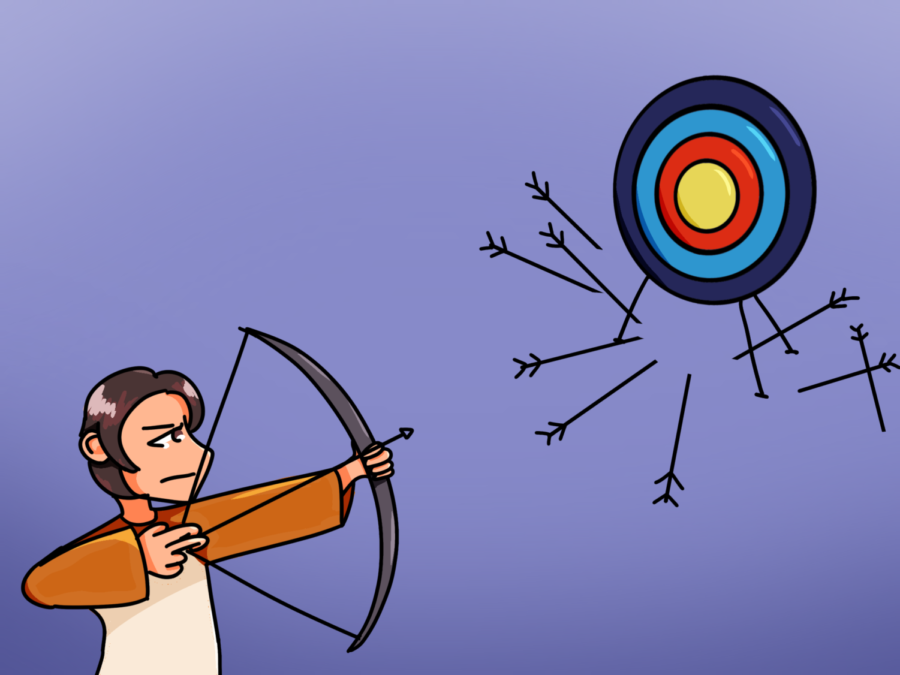The Paradigm of Permission
April 4, 2023
The Paradigm of Permission, or You Are Allowed to Fail
I am going to say the F-word. It’s not a word we like to hear, nor is it a word we like to use. I’m going to say it. Ready?
Failure.
Now, tell me, how do you feel? And remember, this is for posterity, so please, be honest. (Thank you, Count Rugen, you six-fingered man of wisdom).
A recurrent refrain I have heard from students is, “I feel like I failed.” It is said with the tone of negativity suggesting a finality akin to death. Is it because you didn’t get the grade or result you wanted? Is it because you didn’t make the team? Is it because you tried something for the first time, and it didn’t go as you expected it to?
What constitutes ‘failure’?
Every student will define it differently, but at the core of what constitutes failure is a sense of inability to reconcile the imagined world of what you want to achieve and the real world of what you actually achieved, unable to see the shortfall between the expectation and reality. Whatever measure you have used against yourself, the discrepancy between “achieved” and “not achieved” will be interpreted as failure.
As a teacher, I have seen many students who have had a distinct fear of failure. They would rather not complete a task, therefore failing in an academic sense, rather than attempt the task and risk receiving feedback that they believe confirms their own sense of self-worth. These students could not see how disciplined effort, feedback and commitment to learning can improve the quality of their work and improve their sense of self-worth and individuality.
Our attitude regarding failure, and how we perceive it, must change. When we are uncertain, in doubt or under stress, the fear of failure is ever-present. When we are afraid, fearful of creating, we need to trust in our abilities and skills, our planning and the quality of work. Turn your fear into excitement. It’s the same chemical in the brain, just a different interpretation. Failure is not an absolute. Failure does not need to be a negative experience; it can be a valuable teaching tool.
Here’s a new way of thinking, a new paradigm.
It’s a paradigm of permission.
You have permission to try something new.
You have permission to make mistakes. Allow for errors.
You have permission to suck at it. And suck spectacularly.
You have permission to fail.
You will not master a new skill or subject content immediately, so why put pressure on yourself to be perfect on the first try? As a creative writer, I give myself permission to write terrible first drafts of stories. I give myself permission to let new ideas for stories have their initial spark and enthusiasm by putting them on the page in my journal or in a new document. And I allow it to suck.
You are allowed to suck at something new. In the creative world like writing and art, when you first start, you are allowed to write drivel. You are allowed to write dog-awful poetry. You are allowed to paint with your fingers. You are allowed to draw random doodles in the margins of the novel you’re reading (except if you’ve borrowed it from the library then that’s a no-no). You are allowed to create something fit to line the bottom of the budgie cage. You are allowed to chuck it out. In fact, you are encouraged to suck.
You are allowed to fail. You are allowed to suck because you have permission to create.
The first draft of any culminating task will be awful because you are consolidating your understanding and knowledge. Let your brain spit out all the bits and pieces first, then you can arrange it into an order and make it better.
When you have permission to fail, to start a culminating task, or even an exercise in class, you remove the fear of failure from yourself. The fear of failure often inhibits you from starting. What if my first draft is bad? What if my initial ideas aren’t good? What if it’s awful?
Who cares?
It’s a starting point to build on your learning and to receive and apply feedback to improve the quality of your work. Permission to fail, permission to suck at the first attempt, allows you to learn and to improve.
If you want to get over this fear of failure, try something new by giving yourself permission to fail. Give yourself permission to suck. Kick start your creativity by giving yourself a swift kick up the bum (this is easy to do: tie a piece of rope around your right ankle. Bring the rope up and over your shoulder from behind. Pull the rope swiftly and kick yourself in the bum).
You kick start your creativity by DOING. No thinking. No procrastinating. No checking socials. No worrying. No hesitation. No. No. And no. To get you started in the DOING phase of kick starting your creativity and overcoming your fear of failure, select an activity from the categories below, then off you go and DO IT.
And for those of you reading this who are creatives, here is some advice:
For Aspiring Writers
- Write 5 very short stories or pieces of description. Each story must be 6 sentences in length and include one sentence of dialogue.
For Curious Poets
- Write 5 poems. It doesn’t matter about how bad you think they are, write them. Give yourself 5 minutes to write each poem. Do them all at once or one at time.
For Ingenious Artists
- Draw 5 pictures. Draw one on a Post It Note.
For Ambitious Photographers
- Select one random object from around the house and take 5 photographs of the object in different locations.
“Resilience is practically a prerequisite for creative success, says Kaufman. Doing creative work is often described as a process of failing repeatedly until you find something that sticks, and creatives — at least the successful ones — learn not to take failure so personally.”
“Creatives fail and the really good ones fail often,” Forbes contributor Steven Kotler.
Let the wisdom of Kurt Vonnegut (read by Sir Ian McKellen) be an inspiration https://www.youtube.com/watch?v=Fh9tMqpH8nc
*This article was written as a part of Teacher Takeover.













Mrs K-Roll • Apr 4, 2023 at 11:39 am
Just do it! That’s great advice Mr Byatt.